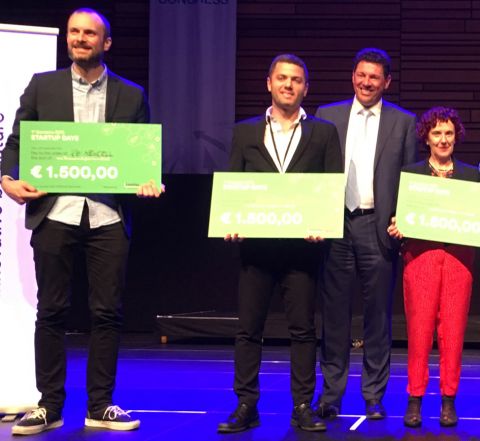The company has developed a single-step process called Sono coating that eliminates the need for the use of chemical binders in fabric-finishing processes. It can be used to impart functionality, such as anti-microbial and anti-odour properties, fire-resistance, hydrophobicity and electrical conductivity, to fabrics. Sonovia has also developed chemicals for use with the process.
Sono coating uses ultrasound to open-up nanoscopic holes in a fabric, into which appropriate nanoparticle-based coating solutions such as zinc oxide can be incorporated. Unlike methods where such nanoparticles are integrated into fibres at the extrusion stage, the fabric is treated at the final stage of manufacture, which makes it inexpensive and suitable for all types of fabric. The company’s studies have found that the treated material is resistant to 65 launderings.
The Sono coating technology was developed at Bar Ilan University in Ramat Gan by a team of researchers headed by Professor Aharon Gedanken. Initial progress with the technology was made through a 2013 European Union (EU)-funded project on the antibacterial treatment of hospital sheets.
Subsequent to this initial project, Sonovia entered into an agreement with German finishing machinery manufacturer Brückner of Leonberg, Germany, to develop jointly a machine to carry-out the Sono coating process. Sonovia also plans to market its chemicals to laundries and has patents in the USA, Europe and Israel, with others pending. In August 2019, the company was awarded a further €2.4-million grant from Horizon 2020, the EU’s research and innovation programme.
At the first Dornbirn Startup Days event, ten start-ups – selected from a short-list of 25, from a longlist of over 180 – held a special exhibition. The President of the Austrian Fibers Institute – and the Chief Commercial Officer (CCO) of the main GFC conference sponsor, Lenzing – Robert van de Kerkhof, says: “Our aim in organising this was to get young entrepreneurs into the innovation process and bridge the market-access gap. At first, we were not sure how successful it would be, because Dornbirn is not Paris or New York, but we have been very pleasantly surprised by the fantastic response.”
The other two winners of the Startup Days event were London, UK-based Anana Anam and and Re:newcell of Stockholm, Sweden. Anana Anam has developed a nonwoven-based leather-like material made from pineapple-leaf fibre, which has already been employed in garment collections by companies including H&M and Hugo Boss. Re:newcell is the company behind a chemical recycling process for turning cellulosic fibres such as cotton waste into a new dissolving pulp called Circulose.

